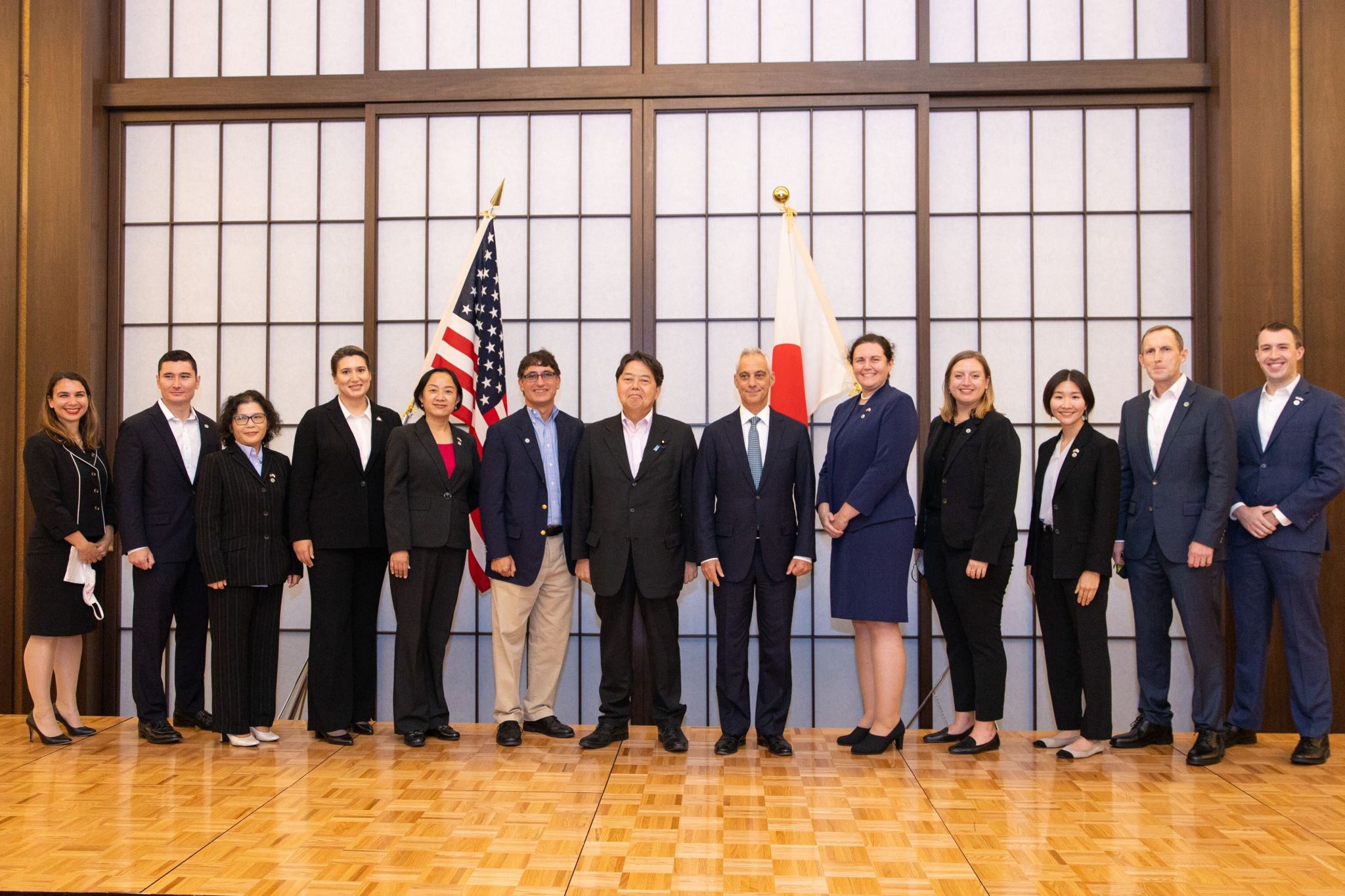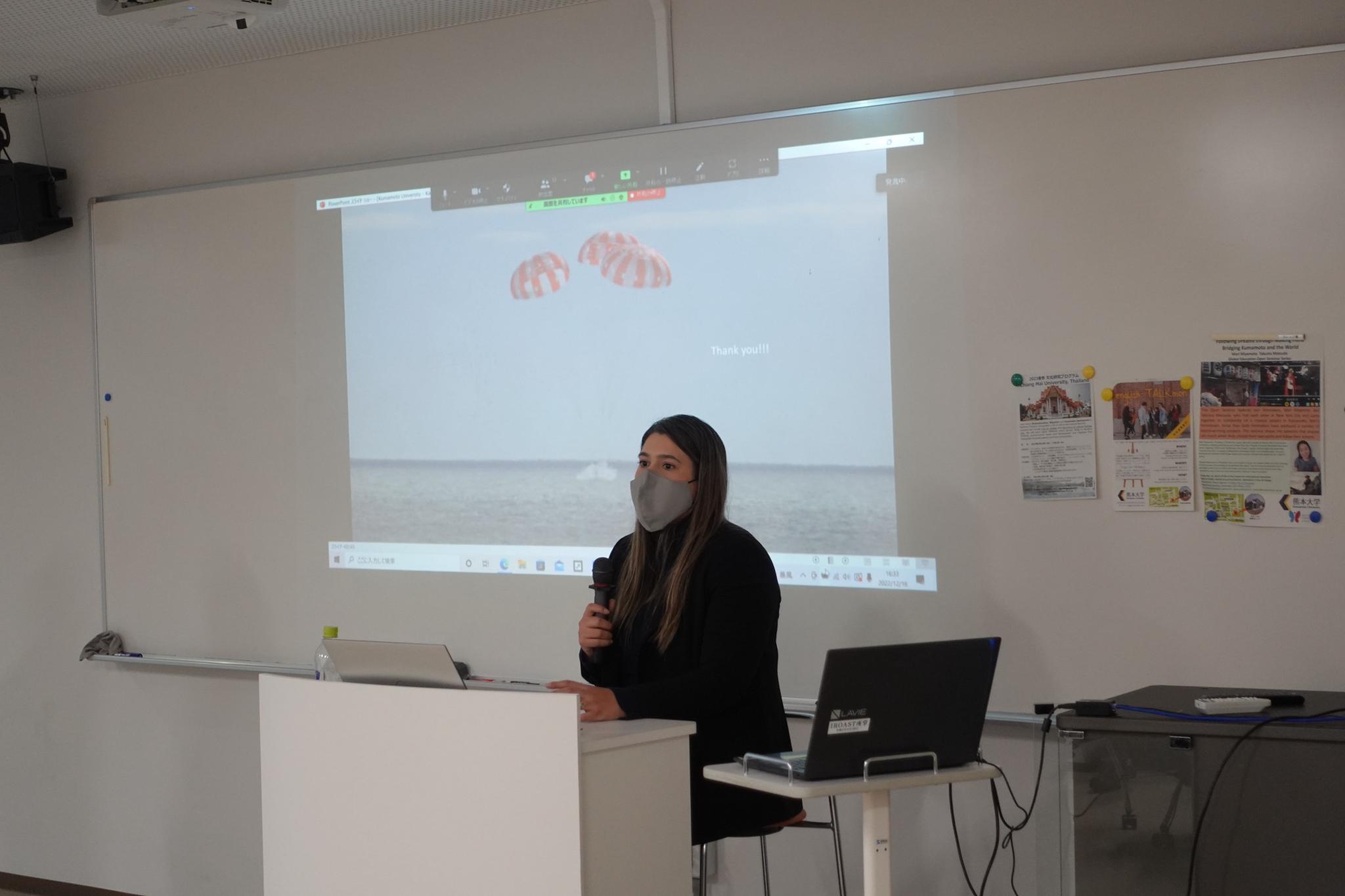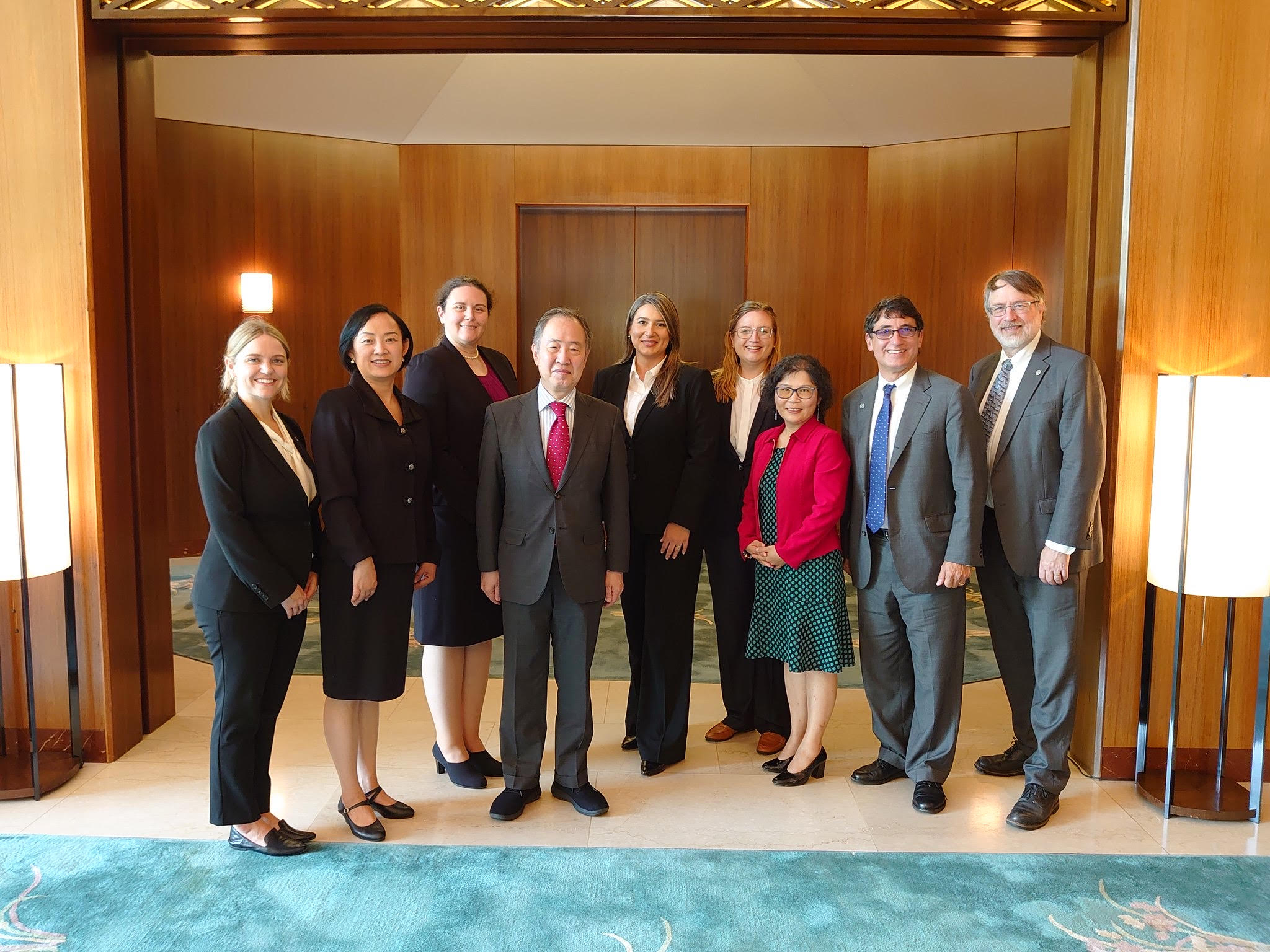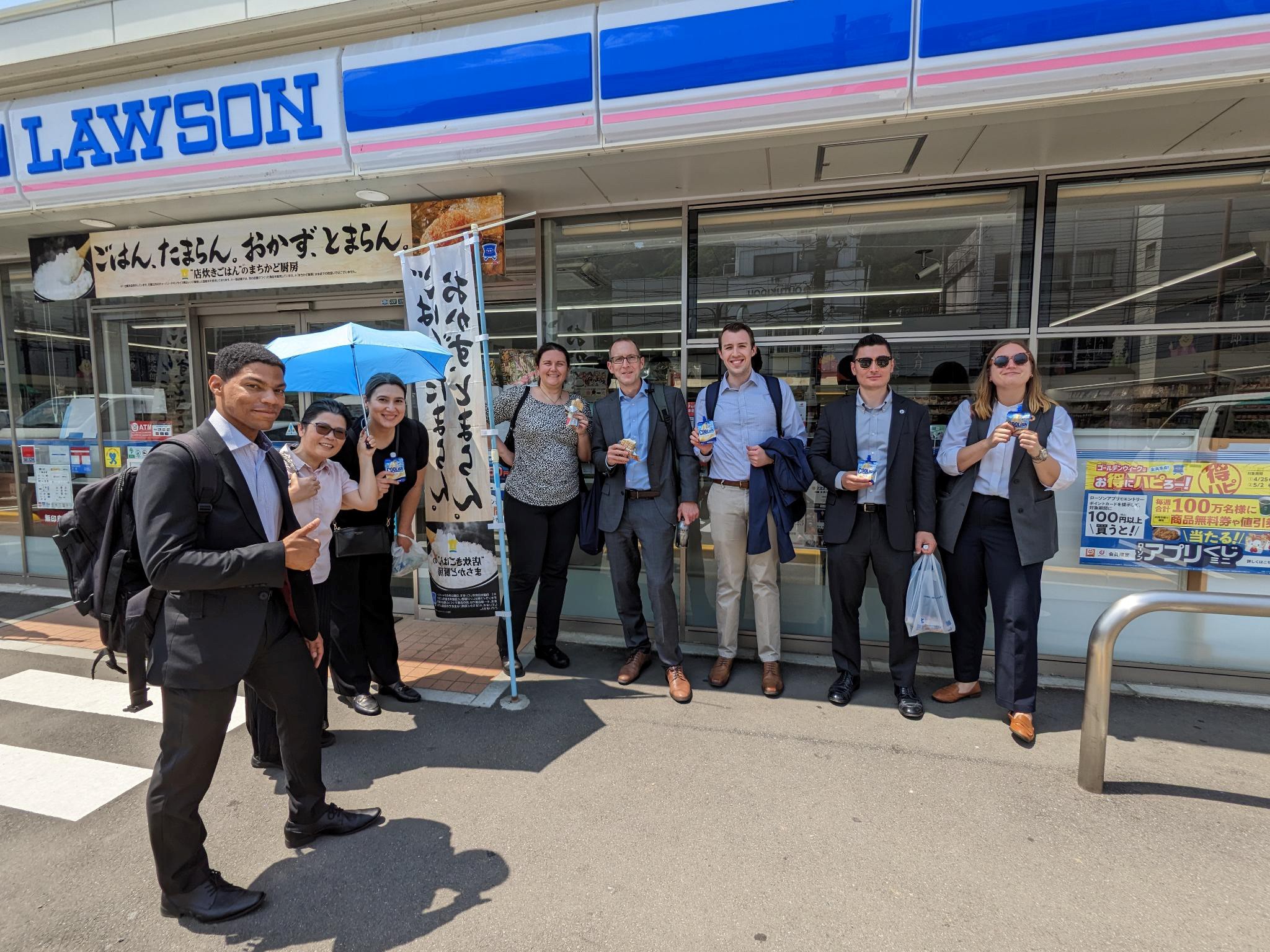NASA, JAXA Benefit from Collaborative Fellowship Experience

A yearlong journey of cultural and professional development overseas has a NASA Deep Space Logistics employee excited about current and future collaboration with one of America’s key international partners in the agency’s Artemis program.
Katherine Cook, who develops cargo delivery services for NASA’s Gateway, recently returned to the agency’s Kennedy Space Center in Florida after an immersive experience in Japan. There, she collaborated with JAXA (Japan Aerospace Exploration Agency), government ministries contributing to Japan’s space activities, and The National Diet’s House of Representatives.

“Everything I did involved Artemis and human exploration,” Cook said. “Developing technologies for Moon to Mars is challenging, but if we can find a good balance of leveraging the strengths of each partner and continue to evolve the partnership, we’ll be able to share knowledge in an even more integrated way.”
As part of her trip, Cook spent about five months at the Tsukuba Space Center, approximately one hour north of Tokyo, working under JAXA Vice President and Director General for Human Spaceflight Technology Hiroshi Sasaki. She partnered with JAXA subject matter experts to host themed discussions for the directorate team, sharing and discussing ideas about the U.S and Japanese approaches, including future partnering opportunities.
Her research themes included: NASA’s Moon to Mars objectives; commercial capabilities such as commercial low Earth orbit development; lunar surface transportation such as rovers and utility vehicles; lunar in-situ resource utilization, human landing systems, and science priorities to enable human exploration to the Moon and beyond. This required intense language training – before and throughout Cook’s trip – so she could understand, write, and speak Japanese with an audience ranging from students and coworkers to Japanese dignitaries, such as the Minister of Foreign Affairs Yoshimasa Hayashi and JAXA President Dr. Hiroshi Yamakawa.

“I think a lot of growth came out of challenging myself – both in learning more about NASA and U.S. agencies collaborating on space and learning about it deeply enough to explain it and communicate it in a succinct way that could make it through translation,” Cook said.
Cook was just the third NASA person selected in the nearly 30-year history of the Mansfield Fellowship, a program named for former U.S. Senate Majority Leader and U.S. Ambassador to Japan Mike Mansfield.
Invited to lecture at several university graduate programs, Cook was inspired by students’ interest in NASA’s Moon to Mars plans, as well as their knowledge and in-depth questions. Her interaction with Japanese colleagues was equally positive, as they welcomed her to their group with open arms.
During the Artemis I launch in November 2022, Cook invited members of the JAXA human spaceflight team to a launch viewing party. Aware that she was disappointed about missing the launch live, they blew her away by showing up in great numbers, doling out high-fives and ecstatically cheering on the launch in front of a big screen TV at the Tsukuba Space Center.

“One thing that leaves an impression on you from Japan is their hospitality. The word for it is ‘omotenashi,’” Cook said. “It’s more than just a word; it’s culturally ingrained in how they interact with each other and the level of consideration that they put into everything they do.”
Enriched technically, culturally, and spiritually from her transformative experience in Japan, Cook returned to NASA “forever changed.” She learned a great deal about science, life, and her own agency. She even picked up a saying that she incorporated into her daily work routine.
“In Japan, at the end of every day, you say, ‘Otsukaresama deshita,’ which means, ‘Thank you for your hard work.’ When you pass a coworker in the hall and when you toast in celebration with coworkers, you say ‘Otsukaresama des,’ ” Cook said. “Even still, when I meet with my Japanese counterparts, I will often say it. And it reminds me to carry that appreciation of my team throughout my day back at NASA. The simple phrase bonds us all together across the international Artemis work we do.”
First published at NASA.gov




